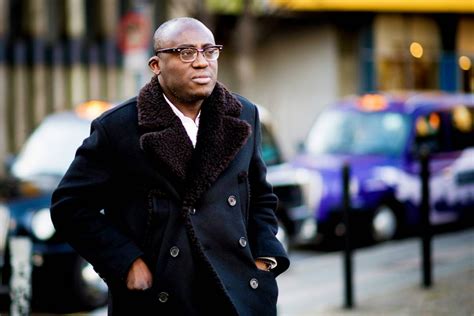Top 76 Quotes & Sayings by Edward Enninful
Explore popular quotes and sayings by a British designer Edward Enninful.
Last updated on April 15, 2025.
Being an immigrant and living in England, I feel like I lived in two worlds. There was the world that, when I was at school with my friends, was very English, and then I'd go home to another country, with exotic foods and colours. I have a sense of colour pairings, and that came from my background, I think.
























